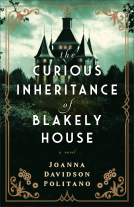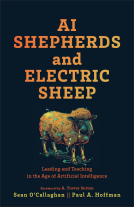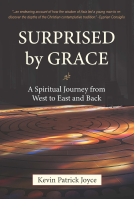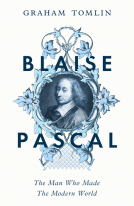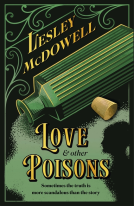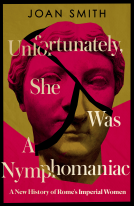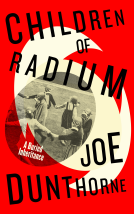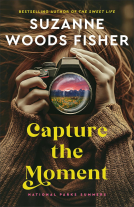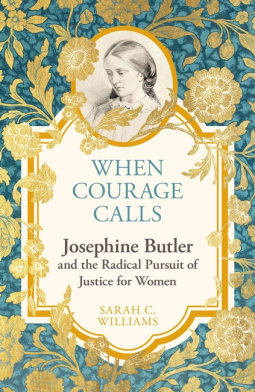
When Courage Calls: Josephine Butler and the Radical Pursuit of Justice for Women
Josephine Butler and the Radical Pursuit of Justice for Women
by Sarah C. Williams
This title was previously available on NetGalley and is now archived.
Send NetGalley books directly to your Kindle or Kindle app
1
To read on a Kindle or Kindle app, please add kindle@netgalley.com as an approved email address to receive files in your Amazon account. Click here for step-by-step instructions.
2
Also find your Kindle email address within your Amazon account, and enter it here.
Pub Date 12 Sep 2024 | Archive Date 26 Feb 2025
John Murray Press | Hodder & Stoughton
Talking about this book? Use #WhenCourageCalls #NetGalley. More hashtag tips!
Description
'Offers a new way of writing about religion and should serve as a model for future studies in modern British history. ' Literary Review
'A crucial and compelling read' NATALIE COLLINS @GodLovesWomen
'The story of Josephine Butler is astonishing, shocking, inspiring, recounted here by a narrator who understands the very core of her subject. A powerful read.' CLAIRE GILBERT, author of I, Julian
'When Courage Calls allows us to hear Butler's message afresh at a time when women's value and safety is again at risk.' ALISON MILBANK, Professor of Literature and Theology, University of Nottingham
'Remarkable' KRISH KANDIAH
'This is an inspiring book written by an inspiring writer' RACHAEL TREWEEK, Bishop of Gloucester
Millicent Fawcett, the leader of the British suffragist movement, described Josephine Butler as 'the most distinguished English woman of the nineteenth century'. Among the first feminist activists, Butler raised public awareness of the plight of destitute women, worked to address human trafficking and led a vigorous campaign to secure equal rights for women before the law. In her pursuit of justice, Butler did as much for women as William Wilberforce did for African slaves within the British Empire, and yet, while Wilberforce remains a household name, Butler is forgotten.
Social historian Sarah C. Williams presents a re-examined biography of the radical political activist Josephine Butler. From the beauty of her childhood in Northumbria, to the stifling intellectual environment of mid-Victorian Oxford; from the impoverished streets of Liverpool and the brothels of London, Brussels and Paris, to the offices of Westminster and the Houses of Parliament. Butler's relentless drive to secure rights for women against the sexual double standard of her day captures a remarkable woman with deeply held values for equality.
Underpinning Butler's public life of political activism lies the full corpus of her writing and the spirituality that grounded her activism. When Courage Calls offers a profound examination of Butler's inner life of prayer, defined by her radical sense of justice that was able to transform Victorian society. Such conviction offers us a taste of the possibility for our time and culture.
This biography presents a fresh interpretation of the relationship between Josephine Butler's public leadership, her political activism and her spirituality.
Available Editions
| EDITION | Other Format |
| ISBN | 9781399803731 |
| PRICE | £25.00 (GBP) |
| PAGES | 320 |
Available on NetGalley
Featured Reviews
 Reviewer 1168388
Reviewer 1168388
This is a well-written, thorough, and thoughtful biography of one of history's forgotten heroines. I can't believe I've never heard of Josephine Butler. This book is both heartbreaking and inspiring, portraying how Butler's faith, family, and marriage motivated her to help the under-served even as she faced enormous personal difficulties. I will be recommending it to all of my friends.
Thank you to NetGalley and the publisher for the free eARC; I post this review with my honest opinions. This review is cross-posted to Goodreads and Amazon.
 Reviewer 1515085
Reviewer 1515085
Josephine Butler (1828-1906), an early heroine of British feminism, is best known for campaigning against the 19th-century Contagious Diseases Acts (which legalised women suspected of working as prostitutes being forcibly examined for venereal disease, and detained until cured if infected) and was instrumental in these being repealed.
This new biography, by cultural historian Sarah C. Williams, focuses on Josephine Butler's spirituality, and argues that her Christian faith was intrinsic to her pursuit of social reform. Williams suggests that this religious element appeared "problematic" to later generations of feminists, while conversely Butler was also "too feminist for the Christian camp." This, argues Williams, has led to Butler being a rather neglected figure, relative to her achievements, though the tide is starting to turn. (There might also be an element of squeamishness about the issues Butler campaigned about- a figure like Florence Nightingale is easier to do a school assembly about).
I liked the author's passionate belief in the significance of Josephine Butler - "This woman needs to be known and her voice heard". I also liked that the book engaged with Butler on her own terms, for example, the importance of prayer to her way of life and way of thinking. It made an argument for her continued relevance to contemporary issues without seeking to present her as preternaturally modern. The book also raises an interesting methodological issue: how to study and examine something as personal and intimate as prayer, especially when the evidence is "partial and limited."
While I already admired Josephine Butler, having seen a documentary about her a few years ago, I learnt a lot from this in-depth biography. What Butler was contending with is still shocking. This anecdote stood out: "In April 1870 she met a prostitute who had chosen to go to prison rather than submit to the terms of the Acts. Butler heard how the magistrate who committed the woman to prison had a few days earlier paid her several shillings for sex. Butler responded by writing to all the magistrates she knew who had consorted with women to inform them that if they did not stop persecuting these women, she would speak openly about the nature of their relationships with these girls."
The book mixes traditional, chronological biography and in-depth academic analysis. It is not an "easy read", but it has a fascinating subject in Josephine Butler, is thought-provoking, and makes a strong central argument for the importance of her faith.
Many thanks to the publisher and NetGalley for the advance copy.
A biography of one of history's forgotten feminist campaigners, Josephine Butler nee Grey, which centers on Butler's deep religious faith. Josephine's belief in God was one of the mainstays of her life & a well of inspiration & strength throughout. Whether it was campaigning for the increasing of the age of consent or the fight to overturn the deeply misogynistic 'Contagious Diseases Act 1864', her faith was intertwined with her political work. In fact this is given by the author as one of the reasons why Josephine Butler is no longer a household name - she was considered by later feminists as too religious & by Christians as too feminist & so her legacy was allowed to fade into the background.
What an interesting read! I wasn't familiar with Josephine Butler before reading this, but what a courageous lady she turned out to be. Alongside a small number of friends & acquaintances, she took on the British 'establishment' (& some in other countries), at the cost of former friends & even physical threats from those whose livelihood in the trafficking of young girls & women for the sex trade she was threatening. Butler even found time to write several books including one on the life of the Christian saint, Catherine of Siena. This is a well-researched, well-written account of a formidable woman who deserves to be remembered.
My thanks to NetGalley & publishers, John Murray Press/Hodder & Stoughton, for the opportunity to read an ARC.
This is an interesting, enlightening, and encouraging book! I had never heard of Josephine Butler before. Sarah Williams does an exceptional job bringing this historic woman to life! And what a life! She has times of joy and sorrow. These times strengthen her faith in God. She often reaches out to others while she's suffering to help them out of their horrible circumstances.
This book has encouraged me to remember the power of prayer! Josephine commits a lot of her time to prayer. Her prayers move mountains. "But above all we see her understanding of prayer embodied in her life, and through this subtle portrait she shows her readers how to reconnect the outer life of political action with the inner life of spiritual contemplation."
I was provided a complimentary copy of the book from Hodder & Stoughton via Netgalley. All thoughts and opinions are my own.
 Deborah W, Reviewer
Deborah W, Reviewer
"When Courage Calls" is a biography of Josephine Butler. I knew she'd done much to help women (especially children) trapped in prostitution. She was able to bring together people that normally wouldn't work together and even gathered support for similar work in Europe. I had expected much of the biography to be focused on the details of that work, and the book did cover some of that.
However, Josephine's faith played a motivating role in why she did what she did, so much of this book covered Josephine's Christian faith and the role she felt that prayer played in political activism. She wrote several books about other people, which we're told about and which provided several quotes that showed what she believed. There were also some quotes from various speeches she gave along with a summary of what she said and was trying to accomplish.
This biography was more of an overview of her life and beliefs rather than full of details and action. Perhaps those details no longer exist as Josephine refused to write about herself. Overall, I'd recommend this interesting biography.
 Reviewer 1487897
Reviewer 1487897
“The most distinguished Englishwoman of the 19th century.”
Who would you peg for that title? Florence Nightingale…Elizabeth Blackwood…or even Queen Victoria herself?
Well, you would be wrong. Millicent Fawcett, writing in 1927 wrote this about Josephine Butler! Have you heard of Josephine Butler? I hadn’t until I read “When Courage Calls.”
The book is the remarkable story of a petite, fragile Victorian women who campaigned for the abolition of the Contagious Diseases Act of 1864, fought for gender equality, befriended sex workers discarded by society, and was influential in raising the age of sexual consent. Indeed, Butler was prepared to accept excommunication from polite society to further the rights of those seen as the dregs of society.
So why is Josephine Butler not better known? The author eloquently outlines how Butler was an extremely spiritual and religious woman, who was guided by prayer to answer God’s call. However, she was regarded as ‘too feminist’ for Christians, and ‘too religious’ for the feminists, and so in posterity neither group laid claim to her.
When Courage Calls tells the story of a very human woman, wife, and mother; who through prayer felt called to do extraordinary things and was gifted at writing, speaking, campaigning, and drawing people together.
This is a fascinating book about a little-known woman who did marvellous things, but had no interest in the plaudits of the material world. Ironically, it should be read by anyone curious about religion and prayer, and also feminists, or the overlap of that Venn diagram. It is a detailed biography, and I admit that I did skip some of the deeper theological texts (not my area of interest) and some readers may find it heavy in places. However, the book is well worth persisting with to gain a deep understanding of a most remarkable woman.
 Reviewer 750486
Reviewer 750486
Josphine Butler has been a very underated activist, and this book does her a well deserved justice. She helped sex-workers to leave that life, at a time where they were despised and dismissed by all social classes. The book also focuses in the deep role her faith played in her life, something that most biographers of activists and suffragist tent to overlook as something inherent to Victorian women.
The author's writting style is vivid, and It shows that she has done her research. I would really recomend this book.
 Mandy J, Reviewer
Mandy J, Reviewer
An excellent biography of campaigner Josephine Butler, being thoughtful, balanced, well written and well-researched. I was aware of the work Butler was involved in, but unaware how much her religious faith informed her activism. Her deep Christian faith and her total conviction in the power of prayer informed her campaigning throughout her illustrious career. Her support for so called “fallen women” and her fight to eradicate sex trafficking was astonishingly courageous, especially for a middle-class woman in the Victorian era. Her husband gets his due in this book too, and rightly so. Her Christianity was vital to all she did and thought, and I was fascinated by how it sustained her through difficult times.
Readers who liked this book also liked:
Lesley McDowell
General Fiction (Adult), Historical Fiction, Mystery & Thrillers



